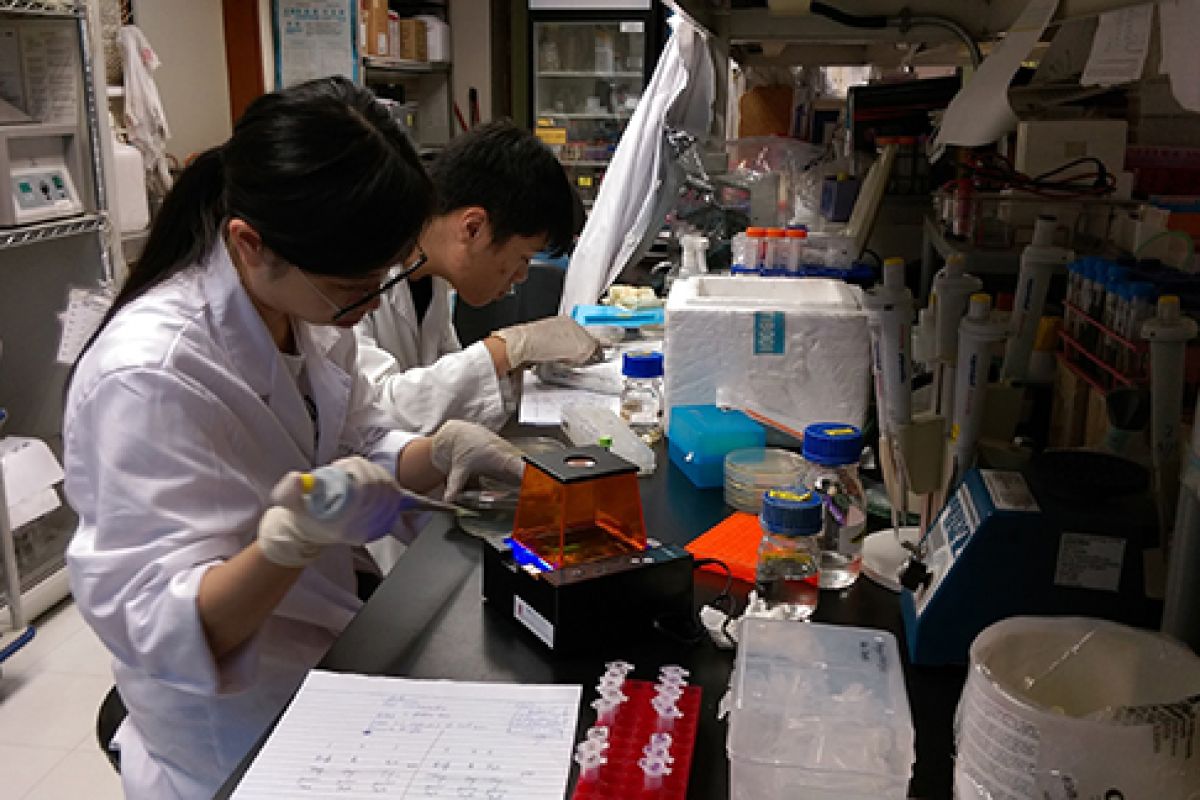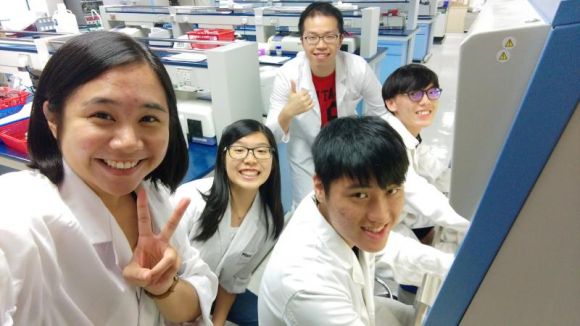As demand increases globally for high-quality biotech educational resources, so too does demand for the Amgen Biotech Experience (ABE). Around the world, sites must keep increasing their humanpower to continue to expand the reach and impact of ABE. One innovative solution has come from Hong Kong, where the ABE site recruits undergraduate and postgraduate students from the Chinese University of Hong Kong (CUHK) to prepare the lab kits, assist with training, and provide onsite support to teachers and students.
“The ambassador program provides students an opportunity to make use of their knowledge and contribute back to the education community—a link between the university and secondary schools,” says Hiu-ting Poh, program coordinator for ABE Hong Kong. “By having the ambassadors experience different parts of ABE from preparing kits to visiting schools, I hope to develop a sense of belonging during this process. Fulfillment comes when they can visualize how their hard work turns into a fruitful learning experience at schools.”
For Gordon Yung, who just graduated from CUHK, working as an ABE ambassador opened his eyes to new experiences in the life sciences. “The role of an ambassador is multifaceted,” he says. “I am constantly challenged and learning new things.”
Over his 3 years as an ABE ambassador, Yung has seen the rising demand for the program firsthand. “I remember during my first year, we usually provided workshops for at most three schools per month,” Yung says. “But now—before the pandemic—each month there will be an average of four to five schools on our list. Although this would mean our workload is a lot heavier, this is also very encouraging because this means that our work here is recognized.”

Yung says it has been fulfilling to serve as a mentor to secondary students in Hong Kong. He remembers being in an ABE class with students while waiting for the results of the gel electrophoresis: “I was able to have a chat with one of the groups of students that I was supervising. They said that they really like the workshop and even went on to say that they want to pursue biotechnology,” he says. “They specifically said, ‘We will meet you next year in CUHK.’ At that moment, I realized that what we are doing here is very important because it can inspire the next generation of biologists.”
Indeed, Poh says that the ambassadors provide a critical link to secondary students. “One teacher said that it is very convincing for undergraduate students to talk to their students directly,” she says. “The ambassadors are young and energetic, and teachers also get the latest information about the university program from our ambassadors.”
Poh is also excited to see the ambassadors contributing to new ways of thinking about the ABE labs. “I always encourage these students to try new ways of doing the ABE work as long as it works better,” she says. That has often involved trying new ways to do the prep work, to make it less tedious. Just recently, some ambassadors devised a way to fill the kits’ tip boxes using 3-D printing. “I would have never expected that, and we will receive the prototype this week,” Poh says. “This may end one of the essential but dull tasks in ABE prep work!”
Looking ahead, Poh’s team is exploring an internship after the 1-year ambassador program; Yung participated in the first pilot of this internship. “As the students should be familiar with the ABE curriculum and work, they will take the role to train other ambassadors. It would be great to engage them in co-developing Hong Kong ABE based on their interest and strengths, such as making videos, managing the website, etc.”
With classes shut down on and off since January 2020 due to the pandemic, Poh is hopeful the situation will stabilize soon so that the site can resume its workshops to train teachers, either in-person or virtually. She also looks forward to continuing the ambassador program.
“It is encouraging to know that this program expands the impact of ABE to not only secondary schools, but also to undergraduate students,” Poh says. “From my perspective, this is one of the crucial elements to keep ABE fresh and sustainable.”
Yung will be studying in Canada in the upcoming year in a diploma program, and he is looking forward to seeing Hong Kong continue to bolster its science education. “ABE provides students with a different perspective into the field of biotechnology, and this is especially true for schools with fewer resources,” he says. “It provides an opportunity for students to learn biotech hands-on, teaching and inspiring students to be the new generation of scientists.”
